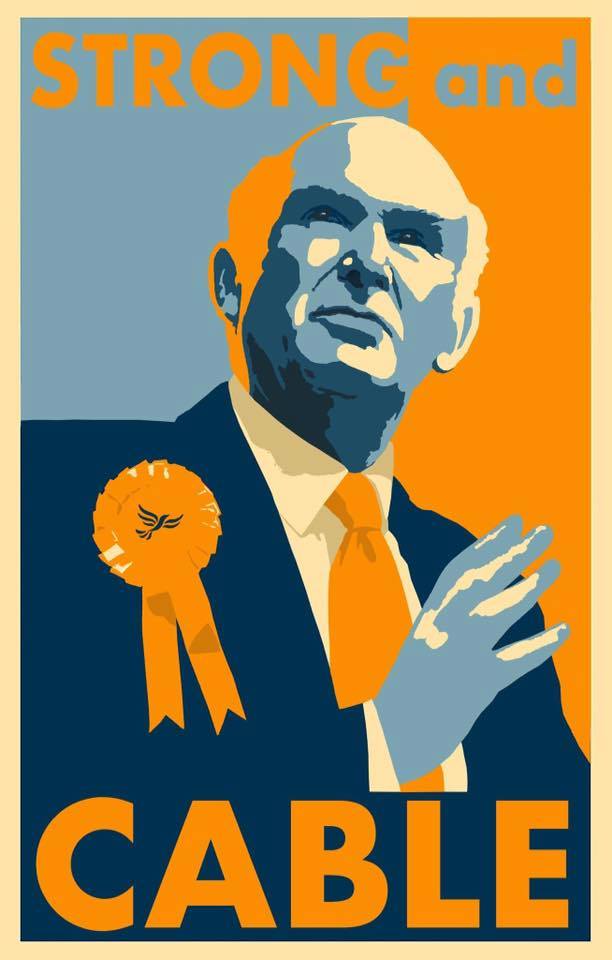The Paranoid Pineapple
Well-Known Member
- Joined
- Jan 17, 2015
- Messages
- 1,797
- Reaction score
- 1,741
- Points
- 113
- Location
- Guildford, Surrey
- Supports
- mighty, mighty Ks
Probs little point in this  but gonna reply anyway (just coz I meant to):
but gonna reply anyway (just coz I meant to):
Well, I think they have generally tended to be. I'm quite happy for everything to be assessed on its merits but also think it's worth viewing this in a historical context where gay people have been persecuted and regarded as sub-human. I think that all gay people have ever wanted is to be treated as equals, quite honestly. Even in the somewhat unclear gay cake case I struggle to sympathise with the bigoted bakers.
I have some sympathy with this but from what I've read the "gay cake" row looks a bit more complex than reporting would suggest. As I understand it, in NI, political belief is a protected characteristic. This wouldn't be the case in the rest of the UK, but there are obvious historical reasons as to why this would apply to NI. The judgement suggested that there was direct discrimination both on the grounds of sexuality and political belief. I'm not sure that the former was the case (might he not have been heterosexual?) and unsure whether the latter ought to constitute valid grounds, but there you go. I think it's a curious case and I'm not sure I agree with the conclusion (though I have no sympathy for the owners of the bakery who had initially accepted the order. Fulfilling the service as requested didn't constitute an endorsement the message).
Either way, I don't think it exactly negatively reflects on equality legislation. The Equalities Act (Sexual Orientation Regs) was hugely important. Without it, B&B owners could freely turn away gay couples, as could adoption agencies and registrars acting on behalf of the state.
In truth, I pondered a bit while writing that sentence. As a rule I don't really like adversarial language - eg regarding people as enemies - because I do see the world in shades of grey. That said, I think it's an absolutely appropriate way to respond to people who don't believe you ought to have the most basic of rights and oppose any legislation promoting equality (this does accurately represent the views of the the Catholic Church, the Church of England, bodies such as Christian Concern, the Christian Institute, and actually, most other religious denominations). If they can't see any worth in our relationships I struggle to see how they can find much worth in us as people.
I think messy compromises are problematic. For instance, would that not lead you to taking a cultural relativist approach? To take one of many possible examples, in some cultures, based around a particular view on morality, the practice of female genital mutilation is perfectly permissible, so why not allow them to be performed in the UK? How far ought we to go when it comes to accommodating differing views?
I'm a bit conflicted on the example of gay marriage in a religious setting. Personally, it's not a priority for me and I don't think it impinges on my rights whatsoever - I'm not in the least bit religious (you may have gathered) so I would have no desire to be married by a priest or an iman! Ask a gay Christian, a gay Jew, a gay Muslim etc, and I suspect they may have a rather different view. The problem I have with it is more from a secularist/humanist perspective. To my mind the religious are still being afforded special rights/privileges that no other body or institution can lay claim to. Is that not wrong? Why should we kowtow to them? I don't think your approach makes you an enemy by any means - I think it's a very complicated area! But I'm unsure as to whether it's something which can be properly justified.
I'm going to ignore Ian's post, party because I'm too lazy to have this argument with two people but mostly because him criticising me for using "loaded" terminology is just too funny. Sorry, Ian.
Yep. This isn't in dispute. The modus vivendi approach to liberalism is, among other things, an attempt to wrestle with this problem.
You can’t, no. However, this is only a massive problem for liberals who think liberalism means fighting the LGBT cause (or other minority group causes) in all circumstances no matter what.
The ‘rational consensus’ liberalism dominant on the left is heavily influenced by the vaguely Marxist idea that the right side to back in any conflict is the one with the most credible historic claim to victimhood. In any squabble between LGBT folk and Christians, then, being a ‘good liberal’ means batting for Team LGBT.
The potential for problems here is obvious, unless you imagine the world to be a kind of moral fable in which LGBT people are always in the right and all LGBT claims of discrimination are fair and reasonable.
Well, I think they have generally tended to be. I'm quite happy for everything to be assessed on its merits but also think it's worth viewing this in a historical context where gay people have been persecuted and regarded as sub-human. I think that all gay people have ever wanted is to be treated as equals, quite honestly. Even in the somewhat unclear gay cake case I struggle to sympathise with the bigoted bakers.
It’s not always that simple, unfortunately. Again, consider the “gay cake” row. In that case, service was not denied on the basis of sexuality. If the claimant had asked for a sausage roll and two steak pies, there would have been no issue. The dispute arose because the claimant requested something very specific (a cake bearing a slogan expressing support for gay marriage) that the defendant didn’t want to produce.
Refusing service outright on identity grounds (“sorry, no Muslims”) is not the same as refusing to provide a very specific service on moral/political/religious grounds (“sorry, Mr Rahman, but I’d rather not print your pamphlet calling for the mass extermination of all infidels"), but in the “gay cake” case these things were conflated and a judgement was made that has some very worrying implications for freedom of expression and freedom of conscience. If memory serves, even Peter Tatchell came round to that view.
IMO, a proper liberal worries about these things, even when it applies to people he doesn’t particularly like. And while I don’t know enough about Farron’s legislative transgressions to convincingly defend them, I do think there is a worthwhile general point to be teased out of all this, namely that a good liberal ought to do more (and be expected to do more) than just uncritically accept any well-intentioned equalities legislation that comes along.
I know from personal experience that it’s hard to criticise the Human Rights Act (and the ECHR it links to) without being accused of being against human rights – as though having reservations about the loose way Article 8 is written makes you an apologist for murder, rape and the Gulag. There is often a similar lack of nuance in discussions about equalities legislation – as though having any reservations about any specifics automatically makes you some kind of bigoted enemy of progress.
I have some sympathy with this but from what I've read the "gay cake" row looks a bit more complex than reporting would suggest. As I understand it, in NI, political belief is a protected characteristic. This wouldn't be the case in the rest of the UK, but there are obvious historical reasons as to why this would apply to NI. The judgement suggested that there was direct discrimination both on the grounds of sexuality and political belief. I'm not sure that the former was the case (might he not have been heterosexual?) and unsure whether the latter ought to constitute valid grounds, but there you go. I think it's a curious case and I'm not sure I agree with the conclusion (though I have no sympathy for the owners of the bakery who had initially accepted the order. Fulfilling the service as requested didn't constitute an endorsement the message).
Either way, I don't think it exactly negatively reflects on equality legislation. The Equalities Act (Sexual Orientation Regs) was hugely important. Without it, B&B owners could freely turn away gay couples, as could adoption agencies and registrars acting on behalf of the state.
Well, as I wrote in my earlier post, the ‘rational consensus’ approach is pretty uncompromising. One is expected to pick a side. You demonstrate the basic thinking very well.
The modus vivendi approach isn’t averse to picking a side. It’s just more open to the idea that messy compromises are sometimes possible and perhaps beneficial in a vaguely utilitarian sense. I support gay marriage but I don’t think much good would come from legislation criminalising a priest or Iman’s religious objection to performing a gay marriage ceremony. Does that make me mushy-headed? Does that make me confused? Or is it an attempt to find something that kinda works for two groups of people with very different (and possibly irreconcilable) views about how to live a good life?
By favouring this sort of compromise, am I friend to your enemy; and, if so, does that make me your enemy? Genuine questions, not rhetorical. I’m very mindful that the equivocal approach I’m defending here has the distinct whiff of moral relativism (which I often criticise) about it. My thoughts are a bit messy in this area, so your thoughts would be appreciated.
In truth, I pondered a bit while writing that sentence. As a rule I don't really like adversarial language - eg regarding people as enemies - because I do see the world in shades of grey. That said, I think it's an absolutely appropriate way to respond to people who don't believe you ought to have the most basic of rights and oppose any legislation promoting equality (this does accurately represent the views of the the Catholic Church, the Church of England, bodies such as Christian Concern, the Christian Institute, and actually, most other religious denominations). If they can't see any worth in our relationships I struggle to see how they can find much worth in us as people.
I think messy compromises are problematic. For instance, would that not lead you to taking a cultural relativist approach? To take one of many possible examples, in some cultures, based around a particular view on morality, the practice of female genital mutilation is perfectly permissible, so why not allow them to be performed in the UK? How far ought we to go when it comes to accommodating differing views?
I'm a bit conflicted on the example of gay marriage in a religious setting. Personally, it's not a priority for me and I don't think it impinges on my rights whatsoever - I'm not in the least bit religious (you may have gathered) so I would have no desire to be married by a priest or an iman! Ask a gay Christian, a gay Jew, a gay Muslim etc, and I suspect they may have a rather different view. The problem I have with it is more from a secularist/humanist perspective. To my mind the religious are still being afforded special rights/privileges that no other body or institution can lay claim to. Is that not wrong? Why should we kowtow to them? I don't think your approach makes you an enemy by any means - I think it's a very complicated area! But I'm unsure as to whether it's something which can be properly justified.


 Remain didn't want Corbyn front and centre " cos he's not popular"
Remain didn't want Corbyn front and centre " cos he's not popular" 